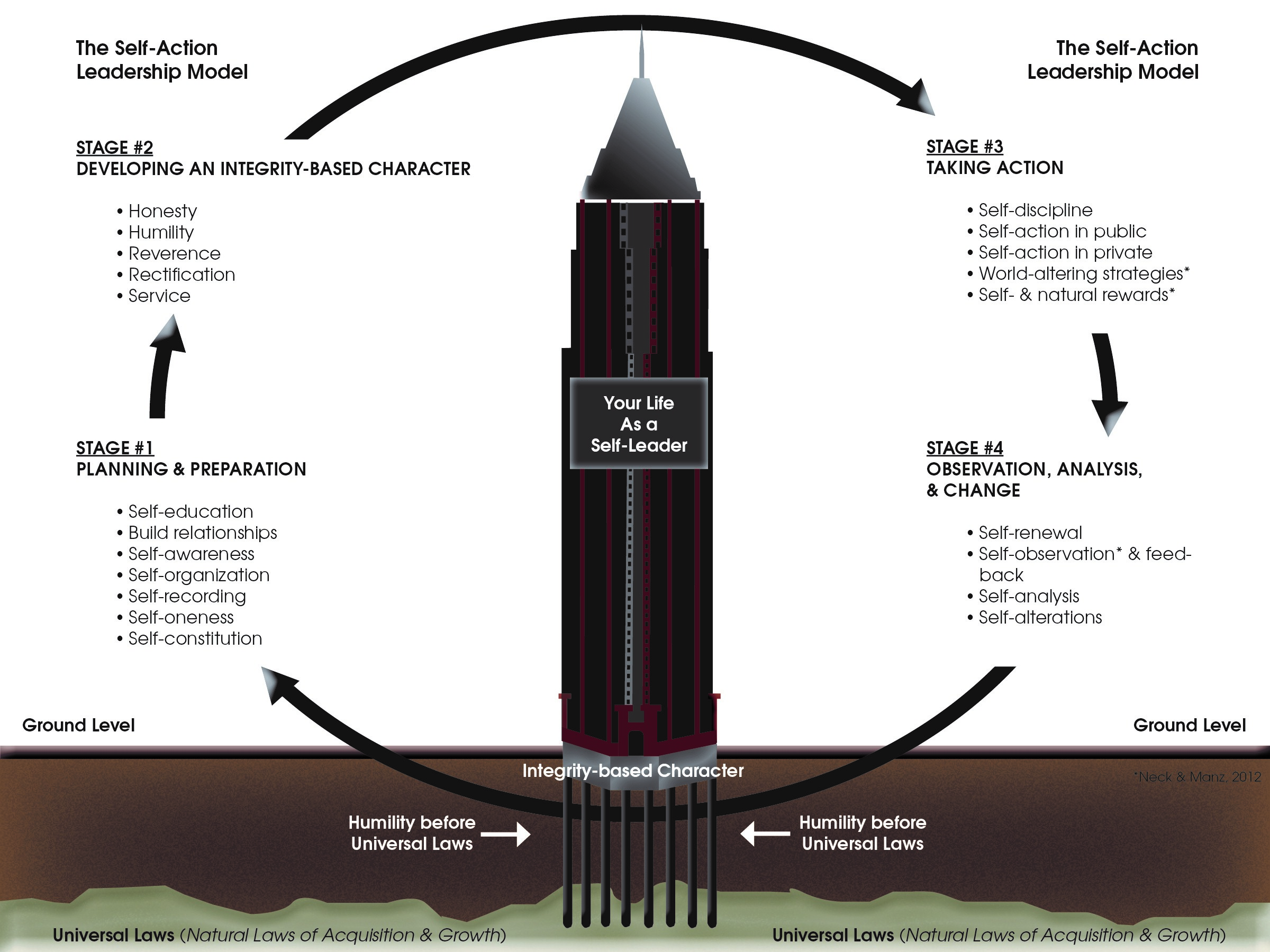In 2015, the Self-Action Leadership Theory—a qualitative, nomological expansion of self-leadership theory rooted in atmospheric and astronomical metaphor aimed at expanding the personal freedom of individuals, organizations, and nations by bolstering the existential growth of individuals through a series of Maslow-esque stages of holistic, personal development. This article introduces an accompanying, practitioner-based Model of Self-Action Leadership (SAL) aimed at the implicit enhancement of a holistic range of administrative processes through explicit training, mentoring, and coaching in the model’s general and universally-applicable principles and practices. The SAL model produces an original construct of personal leadership practice that builds upon the extant self-leadership academic canon, which dates back to 1983 (Manz, 1983). It also provides an analogue to four of the five core processes of Project Management by positioning a self-action leader (an individual) as the ongoing “project” at hand. The SAL Model is rooted in action research and was developed through a variety of self-oriented, action research projects in conjunction with a comprehensive, qualitative, analytical autoethnographic study of a scholar’s life experiences.

